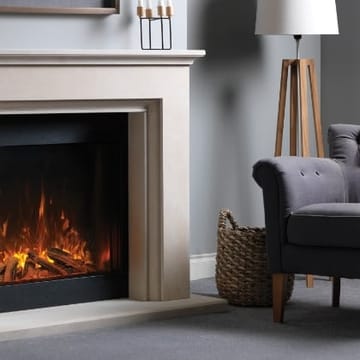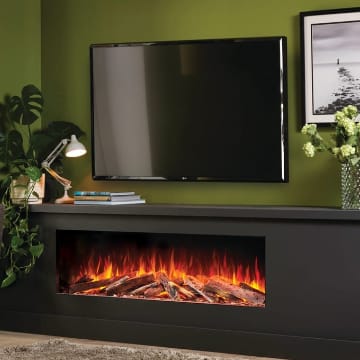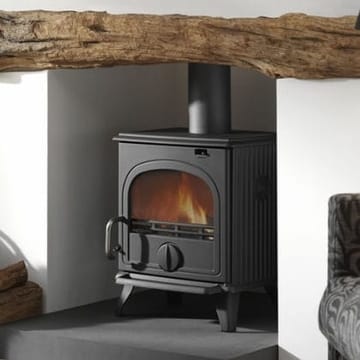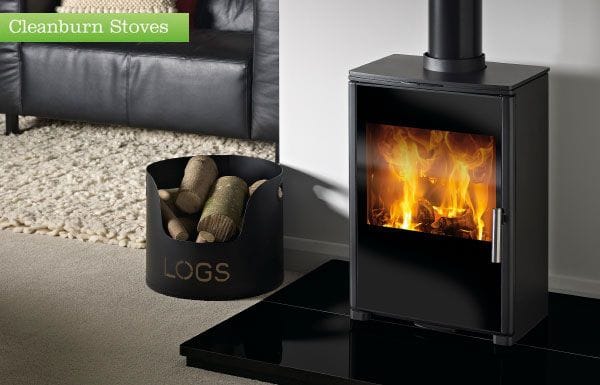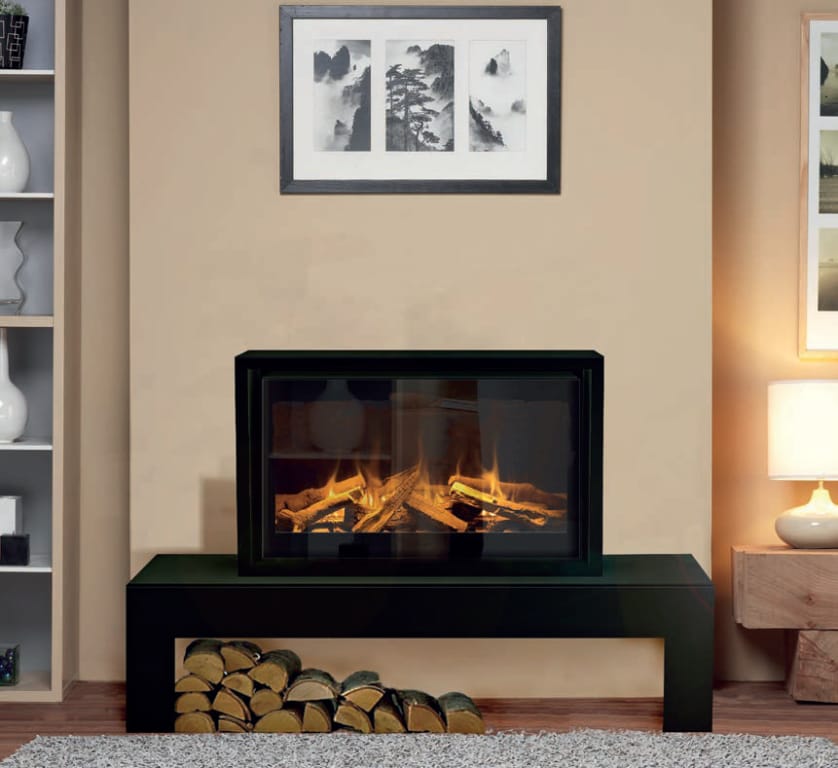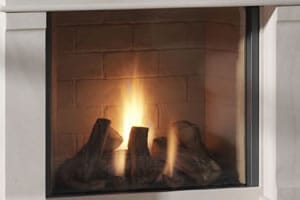
Which fuel should I use in my home?
Making the right choice about which fuel best suits your requirements can be difficult. There are many factors to take into account when choosing the correct appliance and fuel for your needs and circumstances.
Below is a basic description of the various types of fuel available and how they can suit different lifestyles.
Gas - Natural and Liquid
Petroleum (LPG)
The vast majority of the heating appliances currently installed in the UK use gas in some form or another. The development in gas burning technology has seen burn efficiency now achieve over 95%. However, people still choose to purchase the decorative fuel effect open fire which is the least efficient type of appliance on the market. They usually provide no additional heat while burning large quantities of gas.
For those of you who are not connected to the gas mains, and the cost of doing so isn't an option, you can obtain LPG or liquid petroleum delivered to your home and stored in high-pressure containers. As this type of fuel is not the same as that delivered through the main gas supply, you will need to purchase injectors and burners specially set up for the type of LPG you intend to burn, as there are two supplied to homes.
LPG is extremely expensive and can cost up to twice that of the mains supply, this is worth considering when looking at your appliances efficiency at burning gas.
Oil
There are two oil choices used for domestic appliances. If you are running more than one appliance you need to make sure both can use the same type of oil.
Oil appliances are now as efficient (95%) as gas appliances. Because of the efficiency and controllability of appliances burning oil it is often considered the least expensive to use for central heating outside the reach of the gas mains. However, oil prices can be very volatile and can rise rapidly. Being aware of prices and troubles or increased demand for oil will help you to decide when it is best to purchase your oil to get the best price possible.
Solid Mineral Fuel
Solid mineral fuel went out of fashion in the late 70's, but is seeing a come back in the guise of the multi-fuel appliances. Instead of it being the main source of heat for our homes it is now used as a focal point which supplements the existing central heating system in our homes.
Efficiencies vary considerably from appliance to appliance, ranging from large open fires with low or negative efficiency to appliances that can provide heat to more than one room at an efficiency of almost 90 percent.
Solid fuel is often chosen for central heating for several reasons:
- It burns cleanly;
- It has a high heat;
- It is more controllable in the way it burns;
- Variety.
Whether or not a solid fuel proves economical will depend on the appliance type, the fuel type, the way the appliance is used and the way the property is occupied. In houses where someone is always home solid fuel can be cheaper than using gas or oil when used constantly.
Wood Burning - Including Wood Pellet Burners
Wood burning is now recognised as the most environmentally friendly form of heating. This is because of the fact that the amount of carbon dioxide produced when burning a mature tree is less then it would have produced during the growing process. As long as the tree cut down for burning is replaced effectively this is considered CO2 negative. Also the burning of wood produces less ozone damaging gases then allowing the log to rot on the ground, and it's also a renewable energy source unlike gas, oil and coal that take millions of years to form, whereas a tree can take fifteen to twenty years before it is ready to be used in our homes.
Wood maybe environmentally friendly energy source but there are some problems associated with it:-
- Some wood can take up to three years to prepare before being ready to burn.
- Wood requires a large storage space.
- Appliance will need refuelling three to eight times more often than when using solid mineral fuel to produce the same heat.
- Not suited to the most common form of central heating in the UK.
To help eliminate this problem, wood pellet appliances are being developed. They allow for more fuel to be loaded at any given time and are easy to light so it doesn't matter if the fire goes out.
Electric
Although the majority of people believe electricity is an environmentally friendly form of energy and is highly efficient this is actually not the case. Electricity is generated by burning fossil fuels, such as gas, oil or coal. This process runs at an efficiency rate of 35-45 percent. Once transported through the grid if loses a further 3-5 percent. Once in the home electrical appliances tend to run at 90-100 percent efficiency. That means this energy source is only 40 percent efficient! Then of course there is the environmental pollution created by electricity generation which will still exist around the environment of the power plant.
When considering all the above sources of energy to heat your home, electricity becomes the least efficient form of heating and is far from environmentally friendly. Of course there are renewable energy sources, but the UK currently only uses 10 percent.
Electricity also has it advantages, including cleanliness, quickly heats our homes, no fuel storage required and most houses in the UK have an electrical supply. Also a chimney or flue is not required which means swopping to an electricity supply is cheaper than any other fuel, but electricity has a higher running cost.
Any good fireplace showroom should be able to give you good advice about which heating system and fuel is perfect for your needs. We usually find customers are more interested in the look of a fireplace or stove and how that is going to fit into their living space.
We hope you found this article useful, you may also be interested in our other articles about the questions we get asked the most.
FAQ
Fireplaces and stoves ventilation requirements
Reinstating a fire place
The importance of fitting a stove correctly
What are fire baskets?
[Link# why-your-chimney-needs-to-be-swept-on-a-regular-basis]Why Your Chimney Needs to be Swept on a Regular Basis
